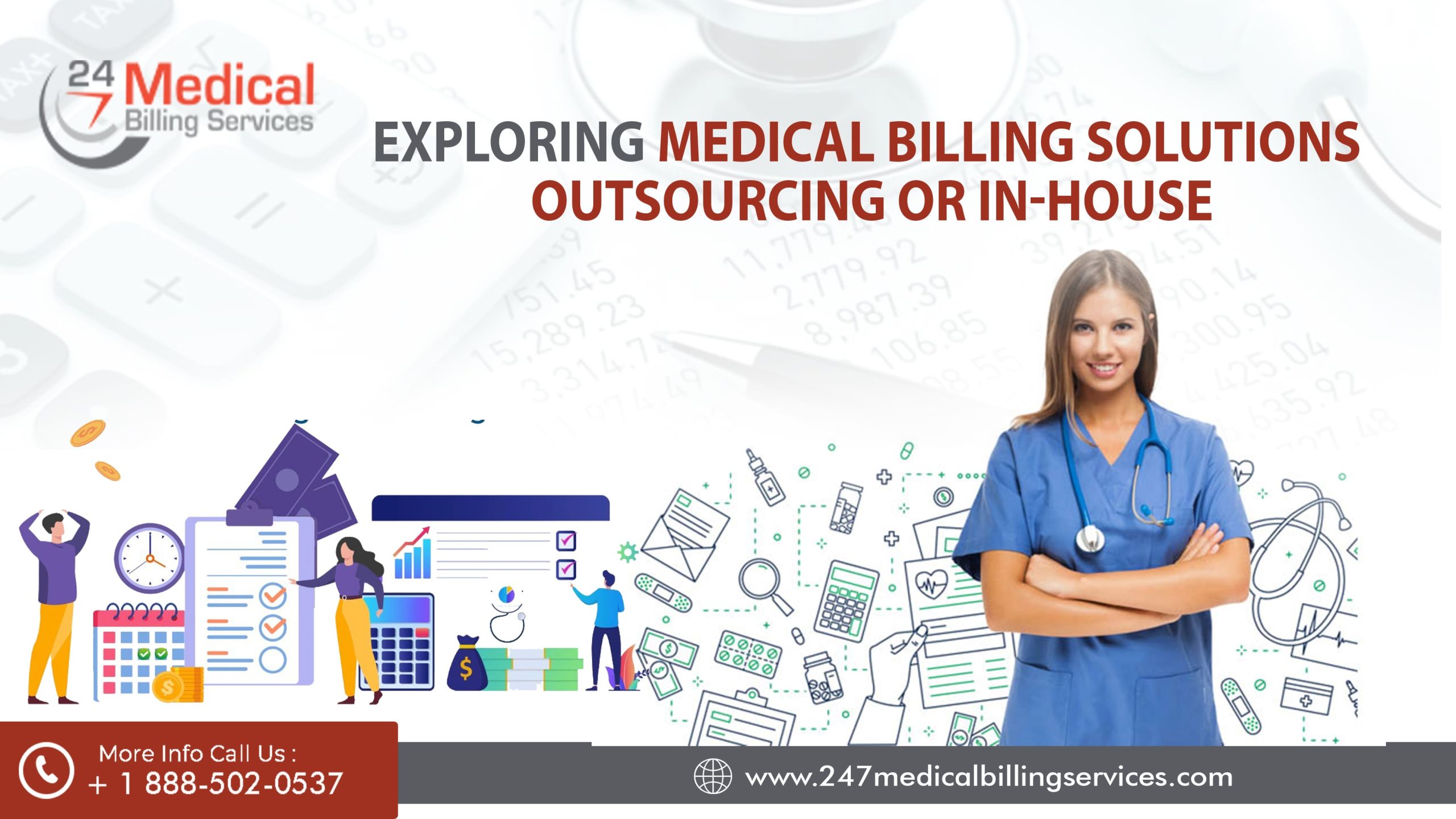
Exploring Medical Billing Solutions Outsourcing or In-House
Tackling the complexities of medical billing is a critical task for healthcare providers, impacting both financial health and patient satisfaction. With the choice between in-house billing and outsourcing medical billing solutions to specialized companies, it's essential to understand each option's unique advantages and challenges.
Therefore, healthcare practices can make an informed decision that best suits their operational needs and goals by carefully considering cost efficiency, control, compliance, and scalability. This comprehensive comparison outlines the key differences, pros, and cons of in-house and outsourced medical billing, guiding you toward the best approach for your practice.
In-house vs. Outsourced Medical Billing
Deciding whether to handle medical billing in-house or outsource it to a specialized company involves carefully evaluating various aspects. Here is a detailed comparison of the fundamental differences between in-house and outsourced medical billing solutions:| Aspect | In-House Medical Billing | Outsourced Medical Billing |
| Definition | Managed directly within the healthcare provider's organization. | Managed by an external medical billing company. |
| Team | Dedicated onsite team of billing specialists. | Team of specialized professionals from an external company. |
| Control | High control and oversight. | Reduced direct control. |
| Cost Structure | Significant investment in staff, software, and infrastructure. | Cost-effective: typically charges a percentage of revenue or a fixed fee per claim. |
| Technology | Requires purchasing and maintaining billing software. | Utilizes up-to-date billing software provided by the billing company. |
| Scalability | Limited by internal resources. | High scalability to adapt to practice growth. |
| Compliance | Must keep up with regulatory changes internally. | It is managed by experts who stay updated with regulatory changes. |
Pros
Understanding the advantages of each approach is essential for making an informed decision. Here are the pros of in-house and outsourced medical billing solutions:| Pros | In-House Medical Billing | Outsourced Medical Billing |
| Control and Oversight | Direct control over the billing process. | Efficient handling by experts with minimal oversight is needed. |
| Personalized Patient Service | Better understanding of patient histories for personalized service. | Increased focus on patient care by freeing up administrative time. |
| Communication | The onsite team is available for direct communication. | Clear and structured communication channels with the billing company. |
| Revenue Management | Immediate response to billing issues. | Enhanced revenue collection and reduced claim rejections. |
Cons
However, each option also comes with its own set of challenges and risks. Below are the cons of in-house and outsourced medical billing solutions:| Cons | In-House Medical Billing | Outsourced Medical Billing |
| Operational Costs | High costs for staffing, training, and software. | Ongoing fees are based on a percentage of collections or per claim. |
| Compliance Challenges | Constant need to stay updated with regulations. | Potential misalignment of interests between provider and billing company. |
| Resource Allocation | Diverts resources from patient care to administrative tasks. | Reduced control over the billing process. |
| Scalability | Limited ability to scale with practice growth. | Scalability to adapt to changes in practice size and services. |
| Billing Errors | Higher risk of errors due to less specialized expertise. | Lower risk of errors due to specialized knowledge in billing and coding. |
| Staffing Issues | Vulnerable to staffing turnover and disruptions. | Potential concerns about transparency and reliability. |
Which Option is the Best?
No single option between in-house and outsourced medical billing stands out as the best choice universally, as each has distinct advantages and challenges. The decision on which approach to take must be tailored to each healthcare provider's specific circumstances and needs. Factors to consider include:Factors to be Considered
-
Size of the Practice
-
Level of Control
-
Compliance and Regulatory Updates
-
Cost Efficiency
-
Staffing Stability
-
Scalability
-
Focus on Patient Care
-
Expertise and Accuracy
What’s Next?
Choosing between in-house and outsourced medical billing depends on various factors unique to each healthcare practice. However, outsourcing can benefit practices seeking to optimize billing processes, enhance efficiency, and ensure compliance.Outsourcing medical billing reputable company like 24/7 Medical Billing Services provides access to a team of experts dedicated to staying current with the latest regulations and industry standards. This partnership can lead to improved accuracy in billing, faster claim processing, and, ultimately, increased revenue. Additionally, it allows healthcare providers to redirect their focus and resources toward enhancing patient care and growing their practice.
To explore how outsourcing can benefit your practice and to get the right advice tailored to your specific needs, reach out to 24/7 Medical Billing Services. Their expertise and commitment to excellence can help streamline your operations and maximize your revenue, allowing you to focus more on delivering exceptional patient care.
See also: How RCM Automation Is Reshaping Medical Billing Processes?

.png)